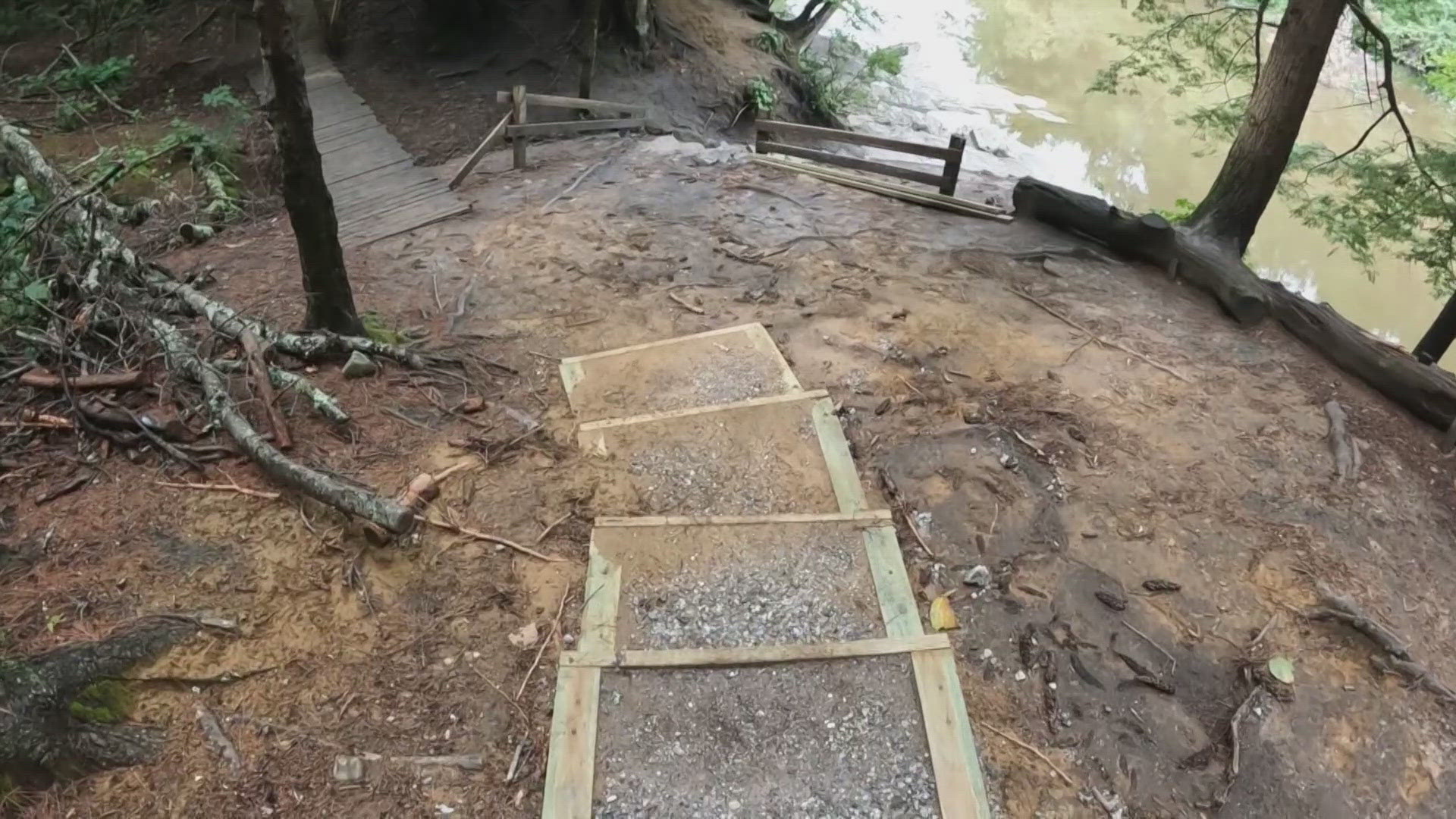PORTLAND, Maine — Maine's changing climate is producing more severe and more frequent storms, like the ones in December and January and even the nor'easter this past April.
Even some over the past summer have caused damage that comes with a huge price tag, like on hiking trails.
"We are not any strangers to storms. We live in Maine," Lindsay Conrad, director of development with Portland Trails, said.
When storms pack too much of a punch, organizations like the nonprofit Portland Trails take a hit.
"This year, we saw some of the biggest storms we've ever seen, and they all happened within four months of each other, so we weren't really able to repair from the first one before the next one hit," Conrad said.
Jon Kachmar, executive director of the organization, said erosion is a big issue.
"The biggest challenge is the erosion of the trail surface that leaves the trail, and we then have to rebuild it in order to have people be able to use it and transit it," Kachmar said.
That's why an emergency summer fundraiser was set up with the goal of raising $100,000.
"We've never really had an emergency fund like this," Kachmar said. "The $100,000 fund is really an immediate reaction to get things back and safe as quickly as we can."
Portland Trails told NEWS CENTER Maine on Monday afternoon that the organization not only met but exceeded that fundraising goal as of last Friday, though they said the campaign to raise additional funds would extend through Aug. 31.
"All funds raised beyond our goal are being used to start our investment in the long-term resiliency and sustainability of our trail network," Conrad said Monday.
But even with the goal met, Conrad said maintaining the trails can get expensive.
"We spend anywhere between $30,000 and $50,000 in trail materials, so that's just materials, without labor," Conrad explained. "That's about how much we budget every year. Our estimated costs from repairing the storms are three times that amount."
However, this fundraiser is not a long-term fix.
"We're getting more and more frequent storms of bigger velocities, and so that material gets washed out. When we put it back, it gets washed out," Kachmar said. "We're trying to get to a point where we can be more sustainable, not lose material, and have things that'll get through more and more storms over time."
Between labor and material costs and more ferocious storms, more money could be needed down the line to make the 80 miles of trails around Greater Portland more resilient.
"We oftentimes do that [labor] with motorized wheelbarrows, so a lot of it is by hand, and we're bringing in yards and yards of heavy gravel and material to be able to fill it in," Kachmar said. "These sorts of big solutions are millions of dollars throughout our trail system."
Kachmar compared the trails to roads, adding that continuous maintenance is needed to keep them safe.
"The more we can get these stable, invest more upfront, the less we have to do over time because the maintenance will be like a regular activity that's spaced out," Kachmar said.
Donations for the Portland Trails resiliency fund by visiting trails.org.

